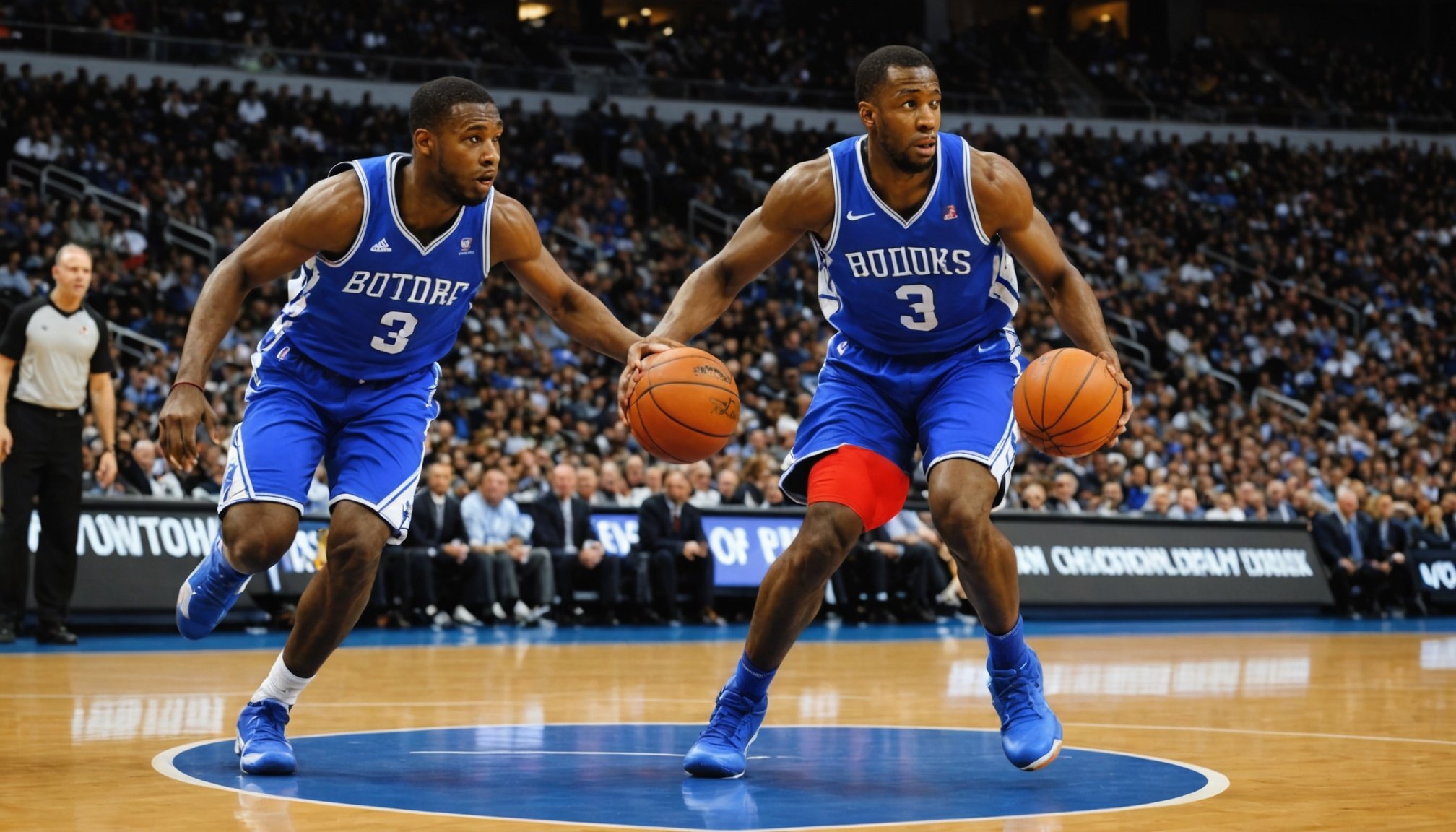The transition from a basketball career to post-retirement life presents unique challenges for UK players. With many athletic careers ending earlier than expected, exploring viable career opportunities is essential for long-term success. This article delves into diverse paths available to former players, from coaching and sports management to business ventures and public speaking. By highlighting personal stories and potential career trajectories, it offers valuable insights that empower athletes to shape their futures beyond the court. Discover how former players can leverage their skills and experiences to thrive in new endeavors.
Overview of Post-Retirement Career Opportunities
Exploring post-retirement careers can be both exciting and daunting. For former athletes, particularly basketball players, transitioning to a new career requires thoughtful planning. This transition is crucial to ensure long-term fulfillment and financial stability.
This might interest you : Mastering Multi-Age Teams: Effective Strategies for UK Basketball Coaches
Common Career Paths
Many retired basketball players find success in various fields. Here are some popular choices:
Have you seen this : Essential Considerations for Selecting the Perfect Basketball Camp for Young Players in the UK
- Coaching: Sharing expertise and passion for the game.
- Sports Commentating: Engaging with fans and audiences through media.
- Business Ventures: Leveraging fame to launch entrepreneurial endeavors.
- Philanthropy: Giving back to communities and causes.
Factors Influencing Career Choices
Several factors can shape a retired athlete's career path. Personal interests, skills, and financial goals play a significant role. Additionally, the network built during their sports career can open doors to new opportunities.
A quote from Michael Jordan encapsulates this: "I've missed more than 9,000 shots in my career. And that is why I succeed." This mindset is vital when considering career transition.
Planning for life after basketball is essential. By understanding the options and factors influencing post-retirement careers, former athletes can make informed decisions. This ensures a smooth transition and continued success beyond the court.
Success Stories of Retired UK Basketball Players
Exploring the inspiring journeys of notable athletes.
Transitioning from professional basketball to new careers can be challenging, yet many retired UK basketball players have successfully navigated this path. Their success stories offer valuable insights and inspiration for others considering similar career transitions.
Profiles of Notable Retired Players
- Luol Deng: After a successful NBA career, Deng has focused on philanthropy, using his platform to impact communities in South Sudan positively.
- John Amaechi: Transitioned into psychology and authored books, leveraging his basketball experience to speak on diversity and inclusion.
- Pops Mensah-Bonsu: Ventured into sports management, applying his on-court skills to excel as a general manager.
Lessons Learned
These players' transitions highlight the importance of leveraging basketball experience in new fields. Deng's philanthropic efforts demonstrate how fame can be a powerful tool for change. Amaechi's career underscores the value of personal branding beyond the court.
Impact on New Careers
Their career transitions illustrate how skills honed in basketball, such as teamwork and leadership, are invaluable in various professions. These stories encourage retired athletes to explore diverse opportunities, ensuring continued success and fulfillment beyond their sports careers.
Skill Transfer from Basketball to Other Careers
Exploring the transferable skills from basketball can open new career doors.
Identifying Transferable Skills
Understanding the skills transfer process is crucial for retired athletes. Basketball players develop a range of transferable skills during their careers. These include teamwork, strategic thinking, and leadership. Recognizing these abilities can help athletes transition smoothly into new roles.
Examples of Skills Applicable in Various Fields
Basketball instills valuable skills that are applicable in numerous fields. Here’s how:
- Teamwork: Essential in collaborative environments like corporate teams or community projects.
- Leadership: Former captains can excel in managerial roles, guiding teams towards success.
- Discipline: Vital for maintaining productivity and meeting deadlines in any profession.
Importance of Soft Skills in Career Transition
The importance of soft skills cannot be overstated in career transitions. Communication and adaptability are key. These skills enhance interactions and help navigate new environments. As John Wooden once said, "The most important thing in the world is family and love." This echoes the importance of building strong relationships and networks.
By leveraging these transferable skills, retired athletes can find fulfilling careers beyond basketball. The journey involves recognizing and applying these strengths, ensuring continued success.
Resources for Training and Networking
Exploring career resources is vital for retired basketball players seeking new opportunities.
Training Programs Available
Former athletes can benefit from specialized training programs designed to enhance their skills for new careers. These programs often focus on leadership, communication, and business management, providing a solid foundation for success. For example, the NBA Players Association offers workshops and courses tailored to the unique needs of retired players.
Networking Opportunities
Networking opportunities are crucial for career development. Retired basketball players can join alumni associations or attend industry events to connect with professionals across various fields. These interactions can lead to job offers, partnerships, or mentorships that facilitate career transitions. Building a strong network is essential for accessing hidden job markets and gaining industry insights.
The Role of Mentorship
Mentorship plays a significant role in career development. Experienced mentors provide guidance, share industry knowledge, and help retired athletes navigate new career paths. A mentor can offer personalized advice and support, making the transition smoother. As the saying goes, "Mentorship is a brain to pick, an ear to listen, and a push in the right direction."
By leveraging these resources, retired players can effectively transition to fulfilling post-retirement careers.
Challenges Faced by Retired Basketball Players
Navigating the complexities of life post-retirement can be daunting for former basketball players.
Common Challenges
Adjusting to life after professional sports presents numerous challenges. A significant issue is the sudden loss of structure and routine, which can lead to feelings of confusion and uncertainty. The absence of a familiar environment often results in difficulty finding a new career path.
Impact on Mental Health
Identity loss is a profound challenge, affecting both mental health and career choices. Many retired players struggle with a diminished sense of self-worth and purpose. This can lead to anxiety and depression, complicating the transition to a new career. As former NBA player Chris Webber once said, "The biggest transition is finding out who you are without basketball."
Strategies for Overcoming Obstacles
To overcome these career transition difficulties, retired athletes can adopt several strategies:
- Counseling and therapy: Address mental health issues and identity loss.
- Skill development: Enhance existing skills or acquire new ones.
- Networking: Connect with former athletes and industry professionals.
By acknowledging these challenges and employing effective strategies, retired basketball players can successfully navigate their transition, fostering a fulfilling post-retirement career.
Strategies for Building a Fulfilling Career After Basketball
Exploring effective strategies for post-retirement success.
Importance of Setting Long-Term Career Goals
Establishing long-term career goals is crucial for retired athletes transitioning to new professions. These goals provide direction and motivation, ensuring that former players remain focused on their aspirations. By identifying specific objectives, athletes can create a roadmap that guides their career progression. This approach not only enhances personal satisfaction but also ensures financial stability.
Creating a Personal Brand and Leveraging Social Media
Developing a personal brand is essential in today's digital age. Retired basketball players can utilize social media platforms to showcase their unique skills and experiences, connecting with potential employers or collaborators. A strong personal brand communicates an individual's values and expertise, opening doors to new opportunities. Social media serves as a powerful tool for personal branding, enabling athletes to reach a wider audience and build a professional network.
Continuous Learning and Skill Development
Commitment to continuous learning is vital for career advancement. Retired athletes should engage in skill development activities, such as attending workshops or enrolling in courses, to stay competitive in their chosen fields. This proactive approach facilitates career progression and adaptability in a rapidly changing job market. Embracing lifelong learning not only enhances professional capabilities but also fosters personal growth and fulfillment.











